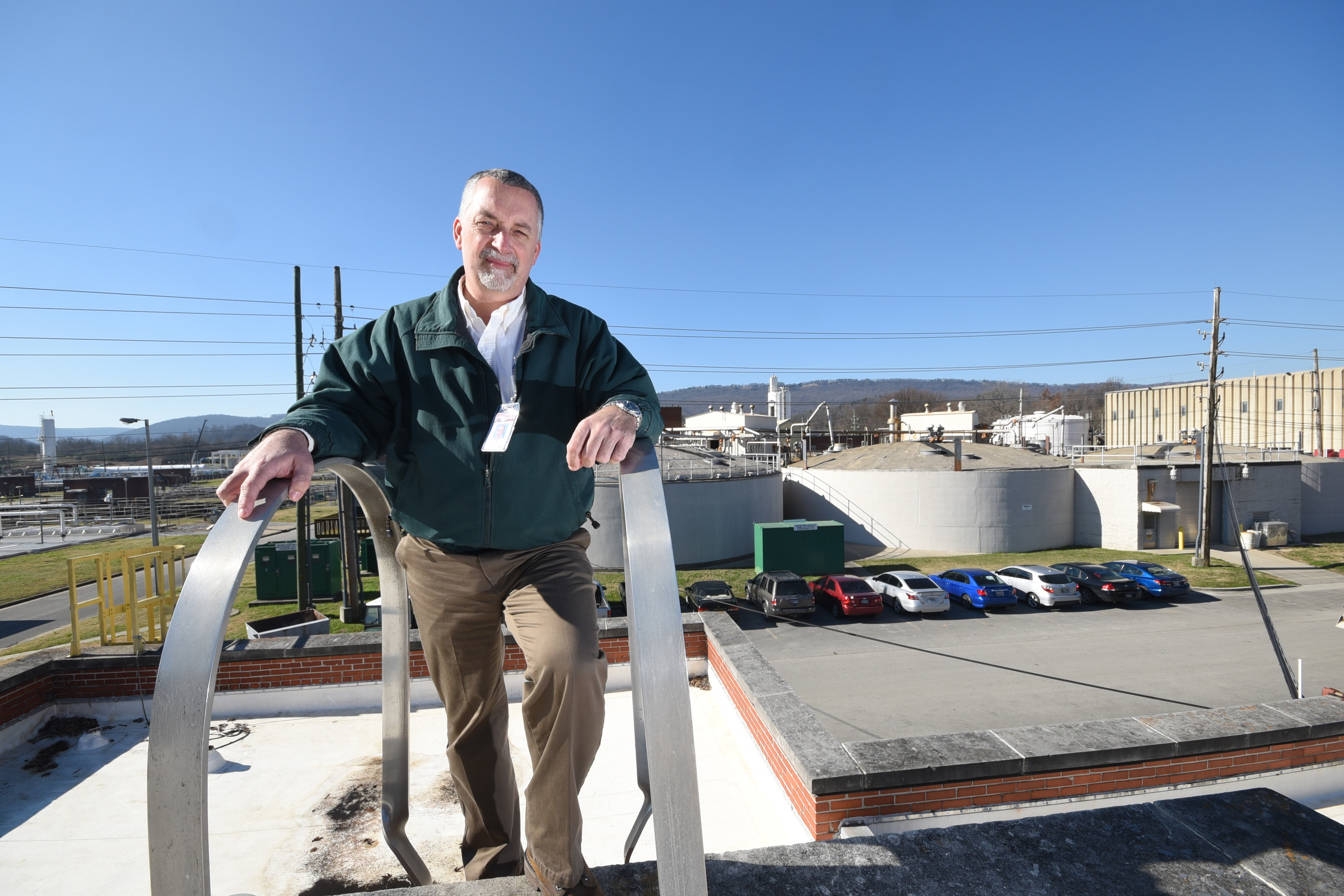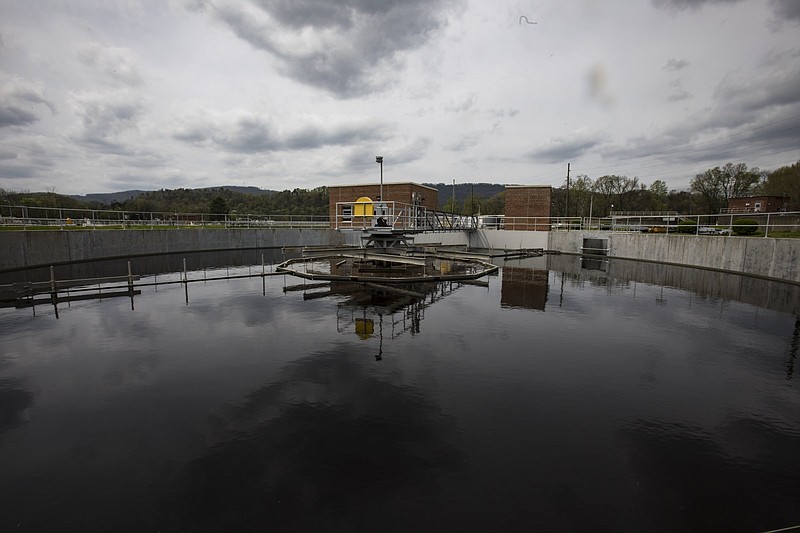If you're having trouble paying your sewer bill, you're not alone.
During the Hamilton County Water and Wastewater Treatment Authority's Sept. 23 board of directors meeting, board Chairman Dick Gee said the increasing number of late payments is becoming a problem.
"If that doesn't level out and come back to a level we're used to, that worries me," he said.
Of the $979,000 the WWTA billed to Tennessee American Water customers for the month of August, $387,000 was in late fees, WWTA Project Designer Caleb Casey reported at the September meeting.
Since June, the authority has written off hundreds of thousands of dollars in unpaid bills, said Peggy Eagle, a WWTA accountant.
As the WWTA increases its monthly sewer rates by 12% starting today, Executive Director Michael Patrick spoke with the Times Free Press to address common questions and misconceptions Hamilton County residents have about their sewer bills.
Q: Why are rates going up?
A: Rates are rising to cover the cost of sewer projects and upgrades to mitigate sanitary sewer overflows and put Hamilton County in compliance with the Federal Water Pollution Control Act.
The WWTA has been negotiating a consent decree with the U.S. Environmental Protection Agency for more than five years. The agreement involves an accelerated work plan for sewer projects over the next 15-20 years, with most projects taking place within the first 10 years.
"We're not raising rates because we want to, we're raising rates because we have to," Patrick said. "We're to the point of where this infrastructure is going to deteriorate."
Sewer rehabilitation projects are underway in East Ridge, Lookout Mountain, Ooltewah, Red Bank and Soddy-Daisy in anticipation of the looming consent decree. About $15 million in additional projects are in the planning stage that will correct significant deficiencies on Signal Mountain.
The WWTA, which serves most of Hamilton County outside of the city of Chattanooga, is a separate entity from the city's sewer system and sets its own sewer rates. The authority typically raises its rates by the same percentage annually as Chattanooga, but the city is not raising its rates this year.
In 2013 the city of Chattanooga entered into its own consent agreement with the EPA, and it has raised its rates by about 10% a year since 2012 to pay for an estimated $250 million in sewer upgrades to prevent overflows of raw sewage into the Tennessee River watershed. The monthly bill for the average 5,000-gallon user in the city has approximately doubled since 2011, going from $25.10 a month in 2011 to more than $50.
Q: How are bills calculated? Are customers with different water providers charged the same rates?
A: Bills are based on water usage. That data is provided by the customer's water company, which in most cases bill for WWTA sewer service. Tennessee American Water customers are billed separately by the WWTA, but rates are calculated in the same way as they are for customers of other water companies.
Q: Can my water be cut off for not paying my sewer bill?
A: Under normal circumstances, yes. Due to the coronavirus pandemic, cutoffs have been suspended until Nov. 1.
 Staff file photo / Hamilton County Water and Wastewater Treatment Authority Executive Director Michael Partick stands in front of the six (round) anaerobic digesters at the Chattanooga Waste Water Treatment Plant on Moccasin Bend in this file photo taken while in his former role of director as director of the city of Chattanooga's Waste Resources Division.
Staff file photo / Hamilton County Water and Wastewater Treatment Authority Executive Director Michael Partick stands in front of the six (round) anaerobic digesters at the Chattanooga Waste Water Treatment Plant on Moccasin Bend in this file photo taken while in his former role of director as director of the city of Chattanooga's Waste Resources Division.Q: Do some municipalities served by WWTA pay more than others?
A: Until now, Red Bank residents have been paying an average of about $5-$7 more per month for sewer service than WWTA customers in other areas. That's because when Red Bank joined the authority in the early 2000s, the WWTA assumed the significant debt load Red Bank had incurred through sewer rehabilitation projects the city performed under regulatory pressure, Patrick said.
Red Bank residents will not see an increase in their bills this year, however.
"The entire system is about to acquire quite a bit of debt," Patrick said, referring to the approximately $240 million in infrastructure improvements needed to comply with the consent decree the WWTA is now negotiating with the EPA.
Since those infrastructure projects are benefiting customers throughout the WWTA's service area, the cost will be spread among all customers.
Depending on their water usage, Red Bank residents may still pay a little more than other WWTA customers because Red Bank customers are billed differently. Red Bank customers pay a minimum bill of $26.54 for 1,500 gallons or less, plus $13.27 per additional 1,000 gallons used. Starting Thursday, other customers pay a minimum bill of $27.59 for 2,054 gallons or less, plus $13.43 per additional 1,000 gallons.
Q: Why do Chattanooga residents pay less than WWTA customers?
A: Chattanooga's sewer rates are the same as the WWTA's, though the city's residential customers receive a 10% discount. Chattanooga can charge less because it has more customers, Patrick said. Chattanooga serves about 77,000 customers, compared to the authority's 33,000.
Q: Do my property taxes not cover sewer infrastructure improvements?
A: No. The WWTA is funded solely by ratepayers. To fund infrastructure projects, it can get low-interest loans from the state of Tennessee's state revenue funds, get bonds from Hamilton County that it would later reimburse, or take revenue generated from fees from its fund balance.
Contact Emily Crisman at ecrisman@timesfreepress.com or 423-757-6508.
